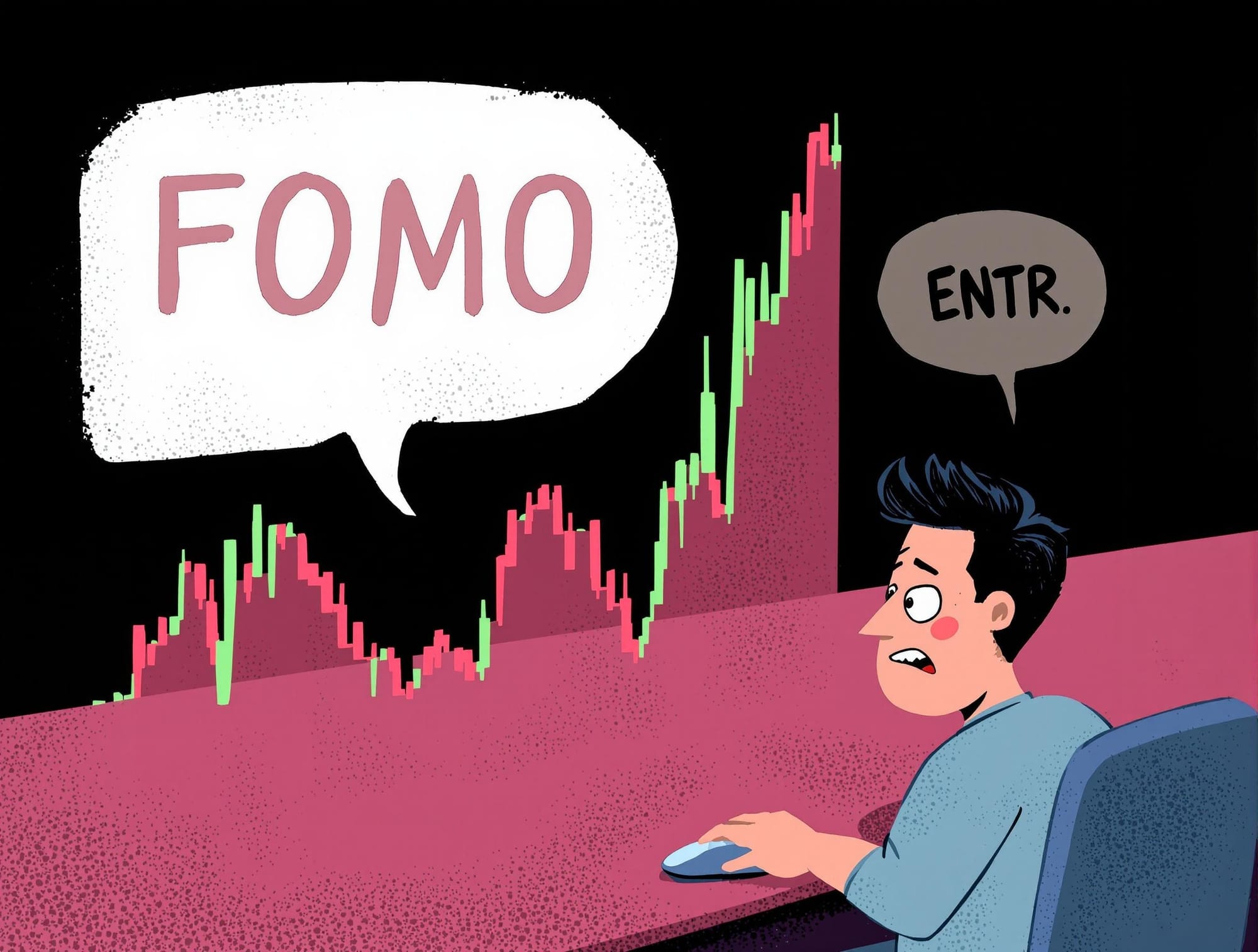What Is a Funded Futures Account?

In futures trading, the ability to grow fast without risking personal capital can be a game-changer. Many traders dream of scaling up their strategies and earning serious profits, but they often get stuck because of limited funds. This is where a funded futures account comes in. It offers a powerful solution: trade with someone else's capital, and keep a portion of the profits. So what is a funded futures account?
These accounts are offered by futures prop firms—companies that let traders prove their skills through an evaluation. If you pass, they provide the capital. This model helps traders avoid risking their own money, and it opens doors for people with talent but limited resources. Sites like this evaluation-based futures funding model have made this opportunity more accessible than ever.
The importance of understanding what is a funded trading account goes beyond just the basics. You need to know the differences between demo and real funded accounts, how rules work, and how to find the best funded trading accounts for your goals. This blog breaks all of that down, including FAQs, pros and cons, and how to get started with a funded account.
Let’s dive into how futures funding prop firms work, what makes them better than stock-based models, and why many traders believe they’re the best prop firms for US traders.
What Is a Funded Futures Account?
A funded futures account is a trading account provided by futures prop firms that allows traders to trade the firm's capital instead of their own. These accounts are part of a growing trend in the industry, offering opportunities for skilled traders to prove their strategies through an evaluation phase. Once passed, traders gain access to funded futures accounts, keeping a share of the profits while the firm manages the risk. This model has become especially popular with those searching for the best funded trading accounts or wondering how do funded accounts work. Unlike traditional setups, these accounts are for futures only—you cannot trade stocks with a funded account. If you're wondering how to become a funded trader, it starts with passing a challenge set by one of the best prop firms for US traders.
What Is a Funded Account vs. a Demo Account?
A funded account is different from a demo account in one major way: real money. In a demo account, you’re trading fake money in a simulation. With a funded account, once you pass an evaluation, the prop firm gives you real capital to trade futures contracts. You earn real profits and follow real rules.
Demo accounts are great for practice, but they come with no pressure and no consequences. Funded accounts add emotional discipline. You must respect daily loss limits and profit targets to avoid getting your account revoked. These aren’t just suggestions—they’re firm requirements.
If you’ve ever wondered how do funded trading accounts work, understanding this difference is key. A demo is for learning. A funded account is for earning.
What Is a Funded Trader?
A funded trader is someone who has passed the evaluation process and is now trading with a firm’s money. These traders don’t risk their own savings. Instead, they keep a percentage of the profits, usually ranging from 80% to 90%.
Funded traders benefit from this model in many ways. They can scale faster, focus more on strategy, and access premium trading platforms. Many top performers even end up managing larger accounts over time. Sites like Trading Psychology Edge explain how the mindset of a funded trader must be sharp and emotionally resilient.
If you want to become a funded trader, it starts with discipline. You must prove you can manage risk, stay consistent, and respect the firm's rules.
How Do Funded Trading Accounts Work?
Funded trading accounts work by allowing traders to demonstrate their skills in a simulated or evaluation environment set up by futures funding prop firms. After meeting the firm's performance rules—usually involving profit targets, drawdown limits, and risk controls—the trader is granted access to a funded futures account using the firm’s capital. This setup is ideal for those who want to trade without risking personal funds and are looking for the best funded trading accounts. These accounts are typically offered by some of the best futures prop firms, especially popular among those asking what is a funded trading account or how do funded trading accounts work. While these opportunities provide access to real markets through a futures account, traders should understand that you cannot trade stocks with a funded account—they're specifically designed for futures. This model helps answer a common question: what is a funded trader, and how do they profit without using their own money? It's a gateway for anyone interested in funding futures and learning how to become a funded trader through performance-based evaluations.
How to Get a Funded Futures Account at FFN
Getting a funded account at this evaluation signup page is simple and fast. You pick an evaluation account, complete the trading goals (usually a profit target), and avoid breaking rules like daily loss limits. Once you pass, you receive a live funded account.
FFN offers one of the most affordable ways to get started. For example, their $50,000 evaluation often costs less than $100. Their platform lets you trade popular futures contracts like the E-mini S&P and Nasdaq. You also get access to advanced charting tools and this supported platform list.
Passing the evaluation quickly takes skill, but the rules are clear and transparent. Traders looking for funding futures can get started with no risk to their own capital.

Why the Best Futures Prop Firms Care About Rules
Rules are the backbone of any serious funded trading program. Without them, firms would lose money. That’s why the best futures prop firms set clear limits on max drawdowns, daily losses, and position sizes.
At FFN, for example, traders must stay within strict risk parameters. These are not meant to limit potential but to enforce consistency. It’s how the firm protects its capital and ensures only disciplined traders succeed.
These rules also mirror real institutional standards. According to Investopedia, risk management is the cornerstone of professional trading. If you want to become one of the best funded trading accounts, following rules is non-negotiable.
Futures Funding Prop Firms vs. Stock-Based Prop Firms
Futures prop firms are more flexible than stock-based ones. Futures markets offer higher leverage, lower capital requirements, and better liquidity. You don’t need $25,000 to day trade, and you’re not limited by the PDT rule.
Unlike stock prop firms, futures firms like FFN give traders faster payout structures, lower platform fees, and access to multiple contracts. Plus, futures markets run nearly 24 hours a day, giving traders more flexibility.
Stock-based firms usually require capital deposits and longer lock-up periods. This makes futures account options better for traders who want control and mobility.
Pros of Funded Futures Accounts
- No personal capital at risk
- Real-time access to major futures contracts
- Potential to scale up accounts based on performance
- Fast payouts (some prop firms offer same-day payouts)
- Affordable evaluations compared to stock-based funding
These benefits make funded accounts ideal for traders who want to test strategies, earn profit, and avoid heavy losses. It’s no wonder more people are choosing funded futures over traditional paths.

Best Funded Trading Accounts: What to Look For
When searching for the best funded trading accounts, look for these features:
- Transparent rules and no hidden fees
- Strong educational resources
- Simple, fair evaluations
- Fast and consistent payouts
- Reliable customer support
Platforms like these evaluation rules set themselves apart by offering all of the above. Read their trading rules carefully, and ask questions before joining.
Also, verify if they allow resets, and how they handle failed evaluations. The right firm will help you grow, not trap you in hidden conditions.
Why FFN Is One of the Best Futures Prop Firms for US Traders
FFN stands out for U.S. traders thanks to its affordable pricing, fast support, and easy account management. Unlike other firms, FFN charges no monthly fees and offers same-day or next-day payouts.
They support U.S.-based payment methods and allow traders to work with platforms like NinjaTrader, Quantower, and EdgeProX. This flexibility makes it easy to find what works best for your style.
With thousands of traders already funded, FFN has become a top choice for people wondering how to become a funded trader in the United States.
FAQs About Funded Futures Accounts
How is a funded futures account different from a brokerage account?
A funded futures account doesn’t require you to deposit your own money. A brokerage account does. In a funded setup, you trade the firm’s capital after passing an evaluation. In a brokerage setup, you trade your own.
This changes how you approach risk. Funded traders must respect the firm's rules to keep their accounts active.
How do funded accounts work with daily loss limits and profit targets?
Firms like FFN set strict daily loss limits (e.g., $1,000) and profit targets (e.g., $3,000) during evaluations. Once you reach the target without violating rules, you get funded.
In the live account, similar limits apply. Breaking a rule can reset your account or require a paid retry. These guardrails keep traders consistent.
Can I choose the futures contracts I trade in a funded account?
Yes. Most firms let you trade a range of contracts, including E-mini S&P 500, Nasdaq, crude oil, and gold. You can trade what fits your strategy as long as you follow the risk rules.
Firms usually post allowed products on their site. You can review contract details on platforms like CME Group, which lists margins, tick sizes, and trading hours.
What if I fail the evaluation? Can I try again?
Yes. Most firms allow you to reset your evaluation for a small fee. This gives you a second chance without starting over completely.
The key is to learn what went wrong. Did you hit your loss limit? Trade during volatile news? Avoid repeating the same errors.
Are funded accounts good for new traders or just pros?
Funded accounts work for both. Many beginners use them to get real-world experience without risking savings. Pros use them to scale up faster.
The evaluation process ensures that only ready traders go live. Whether you're learning or already skilled, this model can help.
Final Thoughts
A funded futures account opens up new paths for growth. Whether you're a beginner with big goals or an advanced trader tired of risking personal capital, these accounts are worth exploring. You get to trade real markets with real money, but without the fear of losing your own.
Platforms like this prop firm introduction make it easy to get started. Their clear rules, fast payouts, and wide platform access give traders the tools they need to thrive.
The key is preparation. Learn the rules. Test your strategy. Respect risk. If you do, you’ll not only pass the evaluation—you’ll become a confident, consistent trader.
If you’re still asking what is a funded account, now you have the answer—and the next move is yours.



